Beginning with gratitude…
My first and best teachers were my parents and grandparents. While none of them were college educated, they all held education in highest esteem - as a privilege to be pursued and embraced. They taught me to be grateful for the opportunity to go to school.
Children in other parts of the world do not have the luxury of feeling entitled to an education, much less one that is stimulating and of the highest quality.
For those of us who follow the Kopila Valley School in Nepal, we are continually welcomed to share in the moments of gratitude, demonstrated and expressed, that Maggie Doyne’s kids experience. Children in other parts of the world do not have the luxury of feeling entitled to an education, much less one that is stimulating and of the highest quality.
In some ways, our greatest challenge in this country in general and in this fortunate community in particular, is to find effective ways to facilitate the development of genuine gratitude in our children. Being blessed with abundance, we run the risk of allowing abundance to feel like our expectation and our right, rather than our great privilege. So too with quality education--it feels like a right rather than a beautiful gift that is worthy of gratitude.
One way to help your child embrace gratitude is to model it. Tell your children that you are grateful for their many and varied opportunities to learn. Remind them that being able to learn is cause for celebration. When students are grateful (or at least on the path toward gratitude) that they can learn and that they are given opportunities to learn, they are that much closer to loving learning.
Embrace the struggles…
My mother was known for her quips and sayings that boiled lessons down to their most simplistic form. For instance, I will never forget her continual reminder that “Can’t never did anything!” Mom was so vehemently opposed to the notion of “can’t” that we were literally forbidden to utter the word in our household.
While this was thoroughly annoying to me as a child, I must admit that I have adopted a similar philosophy in my own childrearing practices. My children and students have not been allowed to assume the passive position of being incapable of learning. They have been reminded repeatedly that they simply haven’t learned or mastered a concept yet.
I know that many of you do the same, and as a result, your children are that much closer to loving learning. We must all remind ourselves that within the struggle is where growth occurs. Learning is not going to be easy. It is not supposed to be easy. At the very least, it won’t always be easy; however, it is always worthwhile and deserving of our best effort. Giving our best-- that contributes to a love of learning too.
It is the process, not the product...
Finally, when striving to make learning fully accessible to all, it is extremely useful to bear in mind that assessments and grades provide direction and not a destination. If you want to rob a child of his or her natural curiosity and love for learning, just focus on grades. The joy that is inherent in our youngest learners is certain to wither and die.
Acknowledging the boldness of this statement, I ask that you pause to consider. When we focus on products (grades) without a full appreciation for the process (learning), we lose sight of the reason we are all here. Our children need to receive input into their learning process. They will not fully grasp every concept, at least not immediately, and their process will not be flawless.
Yet, every child can learn to understand and accept his or her own learning style and then begin to advocate and adjust to his or her own needs. This process is likely to take some stamina. Learning to submit to and love the process leads to better outcomes. My most sincere belief and observation remains: when you focus on the learning, the grades take care of themselves. If you’re striving to love learning, the focus cannot be about making straight A’s.
For any part of this blog that comes across as preachy or judgmental, please do me the kindness of hearing it instead as passion. I happen to believe that we all share the value of wanting our children to be lifelong learners, but we can get a bit off track and become consumed by the need to achieve or to be better than. Most parents report that their greatest desire for their children is happiness. When we support our children in learning to love learning, we help to position that much coveted happiness more firmly within their grasp.





